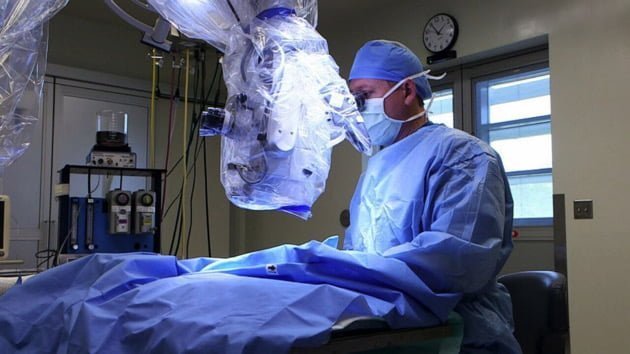(ATHENS, Ga.) — Some cats battling kidney disease are getting a second chance at life, thanks to a pioneering kidney transplant program at the University of Georgia Veterinary Teaching Hospital.
Dr. Chad Schmiedt leads the initiative and is one of only a handful of surgeons who performs the procedure around the world.
“One particular thing about cats is that they are so good at hiding their disease. So, a lot of times, cats won’t start showing signs of illness and owners won’t pick up on signs of illness until it’s quite advanced,” Schmiedt told ABC News Live. “And so that’s one challenge we face in these animals, is trying to work with those very sick animals.”
It’s a type of advanced veterinary care growing in demand as pet ownership has surged over the last 30 years. As of 2023, 66% of U.S. households — 86.9 million homes — own a pet, according to the American Pet Products Association’s [APPA] annual survey. Millennials make up the largest percentage of current pet owners at 33%.
Around three-quarters of cat owners said they considered their pets to be a member of the family, according to the American Veterinary Medical Association’s 2018 and 2022 report on U.S. pet ownership, and that could lead to increased expenses for their care. Just last year, Americans spent $136.8 billion on their pets, the APPA survey said.
“It’s considered absolutely normal behavior for people to love their animals, spend whatever it takes to fix their animals when they get sick. You have to go back to the fact that for many people, these animals are like their kids,” said Dr. James A. Serpell, professor of ethics and animal welfare at the University of Pennsylvania School of Veterinary Medicine.
That was the case five years ago for Franklin, Tennessee, resident Greg Norwicki, whose beloved cat Tucker was diagnosed with kidney failure after routine blood work showed slightly elevated creatinine and blood urea nitrogen – indicators for kidney disease. Tucker’s levels continued to rise over the following months, then Norwicki learned Tucker may be a candidate for a kidney transplant.
The transplant was a success, and Tucker is still alive — and thriving.
“We don’t realize how sick our animals are until you see an animal bounce back,” Norwicki said.
At the University of Georgia, the surgery costs around $20,000 for both the recipient and donor cat, Schmiedt said. There are also recurrent costs — it’s estimated owners can expect to spend anywhere between $1,500 to $4,000 per year on medication, tests and veterinary visits.
Donor cats come from a variety of places, including other cats owned by the family of the recipient. The donor cats are always adopted by the family of the recipient, Schmiedt said.
“To the best of our knowledge, they go on and live a normal life,” Schmiedt said.
Still, some have raised ethical concerns about the program, arguing that unlike humans, cats can’t give consent to have their organs donated.
“Those donor cats don’t come along and say, ‘Yes, please take my kidney.’ The argument that is used is that most of those donor cats are coming from shelters. They might not have found a home. They might have been euthanized in the shelter. So donating a kidney to another cat is preferable to that, especially if the recipient household of that new kidney is willing to adopt the donor,” Serpell said.
In Norwicki’s case, Charlie, the donor cat for Tucker, was previously used for research and was adopted by the family after the procedure.
“So as I say, you know, we saved [Charlie’s] life, too,” Norwicki said.
Copyright © 2023, ABC Audio. All rights reserved.





